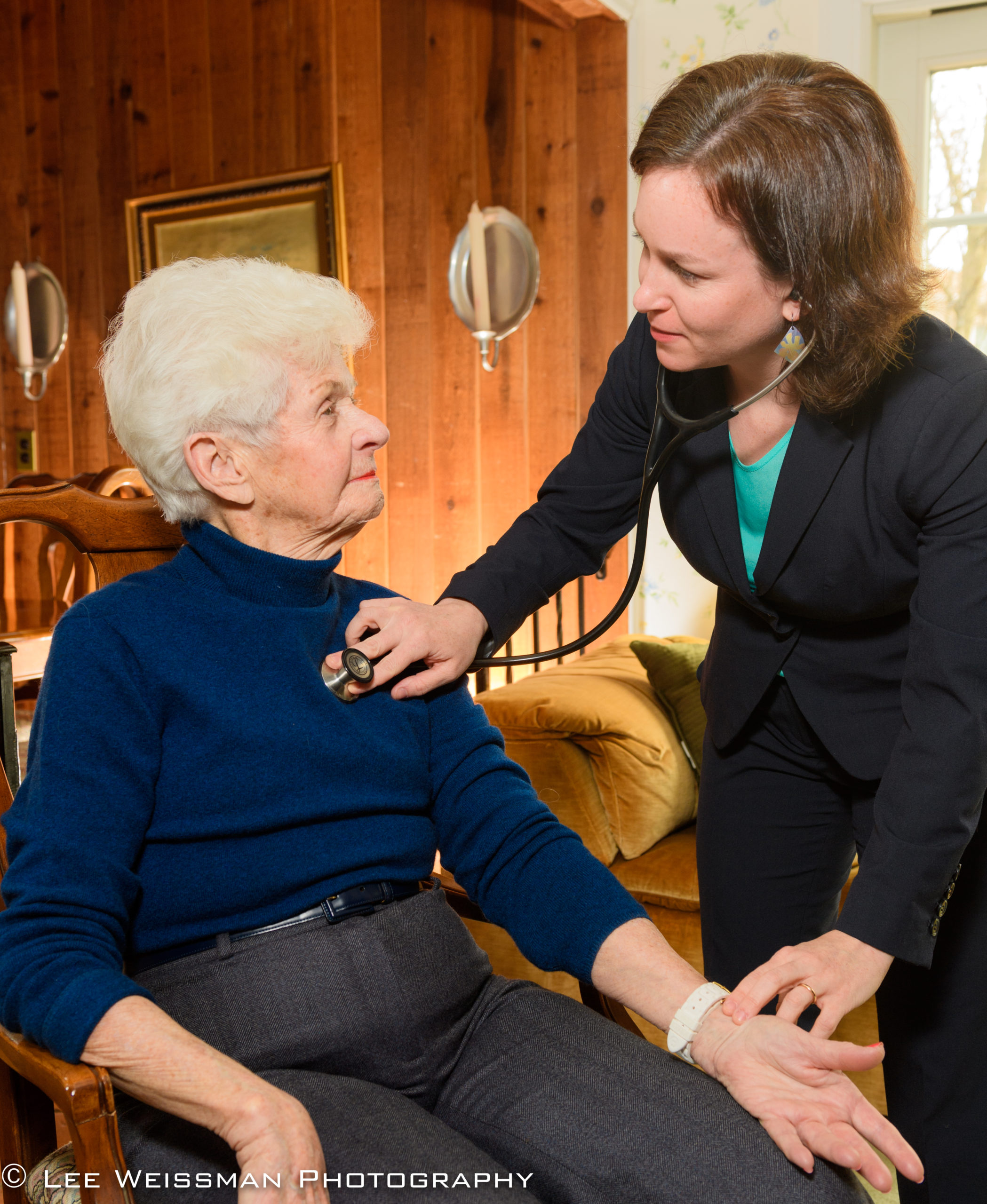For the fourth consecutive year, Northwell Health’s House Calls program has been recognized by the US Centers for Medicare & Medicaid Services (CMS) for its success in caring for chronically ill, frail seniors through home-based primary care as part of a federal demonstration project. In addition to improving health outcomes, Northwell’s clinicians reduced costs during the program’s fourth year by $13,056 per patient annually for a total savings to Medicare of $3.4 million.
Northwell Health’s House Calls practice is part of the demonstration project known as Independence at Home, which was established as part of the Affordable Care Act. CMS analyzed performance data from practices from June 1, 2015- May 31, 2016, the most recent period for which information is available. CMS awarded a total of $7.7 million in incentive payments to seven of the 14 participating practices that succeeded in reducing Medicare costs and met quality goals.
During the fourth year of the demonstration project, Northwell’s House Calls practice provided care to 352 patients in Nassau and Suffolk counties as well as Queens. Independence at Home’s targeted spending for each beneficiary, which is based on a regional formula, was $3,691. Northwell’s practice spent $2,603 delivering care to each patient, a cost savings of 29.5 percent.
Northwell had the highest savings performance among the demonstration sites nationwide. After accounting for Medicare withholds, Northwell earned $1.9 million in incentive payments, the only such program in New York State to receive incentive payments from CMS.
“We know home is where our older, chronically patients want to be and we go to great lengths to make this happen whenever possible,” said Dr. Karen Abrashkin, medical director of Northwell Health House Calls. “Programs like Independence at Home involve a large interdisciplinary team working in concert to deliver individualized patient care. Feedback from the federal program shows that we are allowing older adults to age safely in place.”
Patients in the House Calls program receive comprehensive, coordinated care, such as ultrasounds, radiology, electrocardiogram (EKG), sleep studies, lab work, physical exams, occupational and speech therapy, social work services, as well as intravenous fluids and prescription refills. Physicians, nurse practitioners and other clinicians are available for urgent, same-day visits during the week. The team also is accessible 24/7 to answer clinical questions from patients and caregivers, or arrange urgent services. House Calls, in concert with Northwell’s Center for Emergency Medical Services, has also developed a nationally recognized community paramedic program capable of bringing highly trained clinicians to assess and treat patients in the home in under 30 minutes.
“The biggest cost saving comes from providing high quality care at home to either prevent hospitalizations by catching and treating problems early, or providing high-quality acute care in the home including visits by our clinicians, as well as diagnostics, care coordination, and treatments, including intravenous medications,” Abrashkin explained.
Dr. Abrashkin noted that House Calls’ strong performance in the demonstration project was achieved through teamwork with other programs across the health system, including partnerships with the health system’s nurse Clinical Call Center, Center for Emergency Medical Services, Home Health Care Agency, and Hospice.
“Our House Calls practice allows us the time to really get to know our patients and their goals for treatment,” Abrashkin said. “We are focused on delivering patient-centered care that improves outcomes, reduces costs, and alleviates pain and suffering for patients by preventing unnecessary emergency department visits or hospitalizations.”
“The success of the Independence at Home demonstration and Northwell House Calls has informed numerous other value-based programs, such as the recently announced CMMI demonstrations Primary Care First (PCF), Emergency Triage, Treat and Transport (ET3) and Serous Illness Payment Model (SIP),” noted Dr. Kristofer Smith, Northwell’s senior vice president of population health “The health system will continue to participate in these important programs as we move forward towards our goal of being the highest value provider in the region.”
Under the Independence at Home Demonstration project, participating practices must meet the performance measures for at least three of the six quality measures in order to qualify for the incentive payment. Northwell achieved benchmarks in all six quality measures designated by CMS in year four.
- Follow up contact within 48 hours of a hospital admission, hospital discharge, and emergency department visit;
- Medication reconciliation in the home within 48 hours of a hospital discharge and emergency department visit;
- Annual documentation of patient preferences;
- All-cause hospital readmissions within 30 days;
- Hospital admissions for ambulatory care sensitive conditions; and
- Emergency department visits for ambulatory care sensitive conditions.
Dr. Abrashkin said the cost-savings achieved in the federal project are reinvested to expand House Calls’ services to more patients in need. Independence at Home is now in its sixth year. See the year four Independence at Home report: https://innovation.cms.gov/Files/fact-sheet/iah-yr4-fs.pdf
Submitted by Northwell Health



